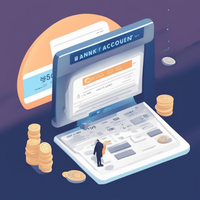Future Trends in Banking

The banking industry plays a crucial role in the economy, and like any other sector, it is constantly evolving to adapt to changing technologies and customer preferences. In recent years, there have been several future trends in banking that are shaping the way financial institutions operate and serve their customers. This overview will provide a comprehensive look at some of these emerging trends.
1. Digital Transformation
As technology continues to advance rapidly, digital transformation has become a key focus for banks around the world. Customers now expect instant access to their accounts and services through various digital channels such as mobile apps and internet banking platforms. To meet this demand, banks are investing heavily in enhancing their digital capabilities by upgrading their infrastructure, adopting cloud computing solutions, and integrating advanced analytics tools.
2. Artificial Intelligence (AI) & Machine Learning (ML)
AI and ML technologies are revolutionizing the banking industry by automating repetitive tasks, improving risk assessment models, and enabling personalized customer experiences. Chatbots powered by AI algorithms can handle routine customer queries efficiently while freeing up human resources for more complex tasks. ML algorithms help banks identify patterns in data to make better credit decisions or detect fraudulent activities.
3. Open Banking
Open Banking is an initiative aimed at increasing competition within the industry by allowing customers to share their financial data securely with third-party companies via secure APIs (Application Programming Interfaces). This sharing enables consumers to access innovative products and services offered by non-traditional players such as fintech startups. Open Banking also encourages collaboration between banks and fintech firms through partnerships or acquisitions.
4. Mobile Payments & Wallets
With smartphones becoming ubiquitous worldwide, mobile payments have gained significant traction in recent years. Instead of using physical cash or cards for transactions, customers prefer utilizing mobile wallet applications linked directly to their bank accounts or cards for hassle-free payments both online and offline.
5. Blockchain Technology
Initially popularized as the underlying technology for cryptocurrencies like Bitcoin, blockchain has gradually been recognized for its potential to transform the banking industry. Blockchain enables secure and transparent peer-to-peer transactions without intermediaries, reducing transaction costs and enhancing data integrity. Its applications in areas such as cross-border payments, trade finance, and identity verification are being explored by various financial institutions.
6. Cybersecurity & Data Privacy
As digital services become more prevalent, banks face an increased risk of cyber-attacks and breaches that can compromise customer data and trust. To counter these threats, banks are continuously investing in robust cybersecurity measures including advanced authentication techniques (biometrics), encryption protocols, real-time threat monitoring systems, and employee training programs on cybersecurity best practices.
7. Personalization & Customer Experience
Given the fierce competition among banks to attract and retain customers, providing a personalized experience has become crucial. Banks leverage customer data analytics to understand their preferences better so they can offer tailored products or services that meet individual needs effectively. Additionally, implementing seamless omni-channel experiences where customers can switch between different touchpoints seamlessly adds value to their overall banking experience.
8. Sustainable Banking
In recent years there has been a growing emphasis on sustainable practices across industries worldwide; the banking sector is no exception. Sustainable banking focuses on incorporating environmental, social, and governance (ESG) factors into investment decisions while ensuring responsible business practices within the bank's operations itself.
Conclusion
The future of banking will continue to be shaped by technological advancements such as digital transformation, AI/ML integration with banking processes, open banking initiatives facilitating collaboration among financial service providers while promoting innovation from fintechs. Mobile payments/Wallets gain momentum while blockchain technology opens possibilities for more efficient cross-border transactions or streamlined identity verification processes.
To succeed in this rapidly evolving environment banks need to prioritize cybersecurity measures alongside offering personalized experiences that cater to individual needs. Furthermore, integrating sustainable practices will be essential to meet the rising demand for responsible banking.
In summary, the future trends in banking signify a paradigm shift, driven by technological advancements and changing customer expectations. Embracing these trends will empower banks to stay competitive and provide innovative solutions to their customers while maintaining a strong commitment towards security and sustainability.
Sponsored
Sponsored
Sponsored
Explore More:

Market Risk
Risk management in banking is a critical aspect of the banking industry. Managing...

Credit Risk
Risk management in banking is a critical aspect of the banking industry. Managing...

Risk Management in Banking
Risk management in banking is a critical aspect of the banking industry. Managing...

Glass-Steagall Act
The Glass-Steagall Act, also known as the Banking Act of 1933, was an...

Dodd-Frank Act
The Dodd-Frank Act, officially known as the Dodd-Frank Wall Street Reform and Consumer...

Basel Accords
Banking regulations refer to the laws, rules, and guidelines imposed by regulatory authorities...

Banking Regulations
Banking regulations refer to the laws, rules, and guidelines imposed by regulatory authorities...

Cash Flow Statement
The cash flow statement is an important financial statement for banks as it...

Income Statement
The income statement is an essential component of a bank's financial statements. It...

Balance Sheet
The balance sheet is one of the most important financial statements used by...

Bank Financial Statements
Bank financial statements provide a comprehensive overview of a bank's financial performance and...

Online and Mobile Banking
In today's rapidly evolving technology landscape, the banking industry has undergone a significant...

Credit Cards
Credit cards are one of the most prominent banking products offered by financial...

Understanding Different Types of Bank Loans: Features and Benefits for Personal and Business Financing
Loans are a core offering of banking institutions, providing individuals and businesses with...

Checking Accounts
A checking account is one of the most common banking products used by...

Saving Accounts
Introduction In the world of banking, saving accounts are one of the most...